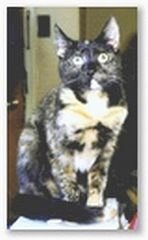There are some that argue that creativity is a gift bestowed on some individuals without rhyme or reason. There are others that argue that there is no such thing as creativity; instead, it is an uncovering of information that has always been there waiting patiently to be discovered.
Self-help programs, guides and literature abounds with how to create more love, create your dreams, create wealth, and so on. There is a $10 billion industry just waiting to help us create whatever we want. I wonder how we got so many geniuses or social scientists to repackage age long secrets able to help us in our hour of need.
I believe that creativity is a fundamental birth right of being born human. As I have stated in previous posts that no one else has our unique blend of experiences, emotions, health, beliefs, truths, knowledge, thoughts and perspective on life and self.
Everyone on earth can look at the same sunset and what we see and feel will be different as seen through the filter of our experiences and concepts. The way in which we express all aspects of our life is uniquely ours. Some find that expression in the arts, some in the sciences, some in their work, hobby, parenting and so on.
How we express our life is creativity in action; our fundamental birth right.
Your thoughts?
If you like my content please consider voting for me at Blogging to Fame Thank you



